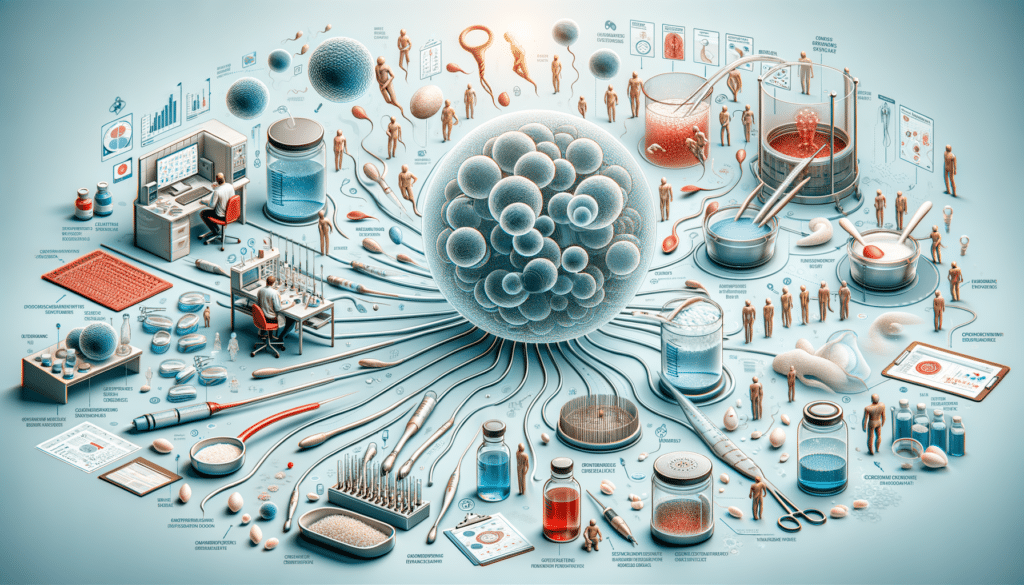The Significance of Sperm Donation
Sperm donation is a vital process that supports individuals and couples in achieving their dreams of parenthood. It is a practice that not only helps those facing fertility challenges but also plays a crucial role in enabling same-sex couples and single individuals to start families. The process is a beacon of hope, providing a pathway to parenthood for many who might otherwise face insurmountable barriers.
The significance of sperm donation extends beyond personal fulfillment. It has societal implications, contributing to diverse family structures and promoting inclusivity. As societal norms evolve, the demand for sperm donation has increased, highlighting its importance in contemporary family planning. This process is underpinned by rigorous ethical standards and medical practices, ensuring safety and reliability for all parties involved.
The Sperm Donation Process Explained
The sperm donation process is meticulously structured to ensure the highest standards of safety and efficacy. It begins with a thorough screening of potential donors. This screening involves a series of medical and psychological evaluations to ensure the donor’s health and suitability. The evaluation process includes:
- Medical History: A comprehensive review of the donor’s medical history to identify any potential genetic or hereditary conditions.
- Blood Tests: Screening for infectious diseases such as HIV, hepatitis, and other sexually transmitted infections.
- Psychological Evaluation: Assessing the donor’s mental health and understanding of the donation process.
Once a donor passes the initial screening, they undergo semen analysis to evaluate sperm count, motility, and morphology. This ensures the donor’s sperm meets the required standards for successful fertilization. The donation process itself involves the donor providing a semen sample, which is then processed and stored for future use. Advanced cryopreservation techniques are employed to preserve the sperm’s viability over time.
Ethical Considerations in Sperm Donation
Ethical considerations are paramount in the sperm donation process. These considerations address the rights and responsibilities of donors, recipients, and any resulting offspring. One of the primary ethical concerns is maintaining donor anonymity while balancing the rights of offspring to access information about their genetic origins. This is often managed through regulated donor registries that allow for controlled information sharing.
Informed consent is another critical ethical aspect. Donors must fully understand the implications of their donation, including the potential for future contact with offspring. Recipients are also provided with detailed information about the donor’s background, ensuring transparency and informed decision-making.
Ethical guidelines also dictate the number of offspring that can be conceived from a single donor, minimizing the risk of accidental consanguinity. These guidelines vary by region and are subject to ongoing review and adjustment to reflect societal values and scientific advancements.
Legal Framework and Regulations
The legal framework governing sperm donation is complex, varying significantly across jurisdictions. These regulations address issues such as donor anonymity, parental rights, and the legal status of donor-conceived children. In some regions, donors may retain anonymity, while others require disclosure of donor identities to offspring upon reaching adulthood.
Legal considerations also extend to the rights and responsibilities of recipients. Contracts are often used to delineate parental rights, ensuring that donors are not held financially responsible for any resulting children. The legal status of donor-conceived children is typically equivalent to that of naturally conceived children, with full rights and protections under the law.
Regulatory bodies oversee the operation of sperm banks and clinics, ensuring compliance with medical and ethical standards. These bodies play a crucial role in maintaining the integrity of the sperm donation process, protecting the interests of all parties involved.
The Future of Sperm Donation
The future of sperm donation is poised for significant advancements, driven by ongoing research and technological innovations. Developments in genetic screening and editing hold the potential to further enhance the safety and efficacy of the donation process. These advancements could lead to more personalized and successful fertility treatments, benefiting recipients and donors alike.
As societal attitudes continue to evolve, the demand for sperm donation is expected to increase. This growth will likely prompt further refinements in ethical guidelines and regulatory frameworks, ensuring the process remains aligned with contemporary values and scientific capabilities.
Moreover, increasing awareness and education about sperm donation will continue to break down stigmas and misconceptions, fostering a more inclusive and supportive environment for all individuals seeking to build families through this method.





